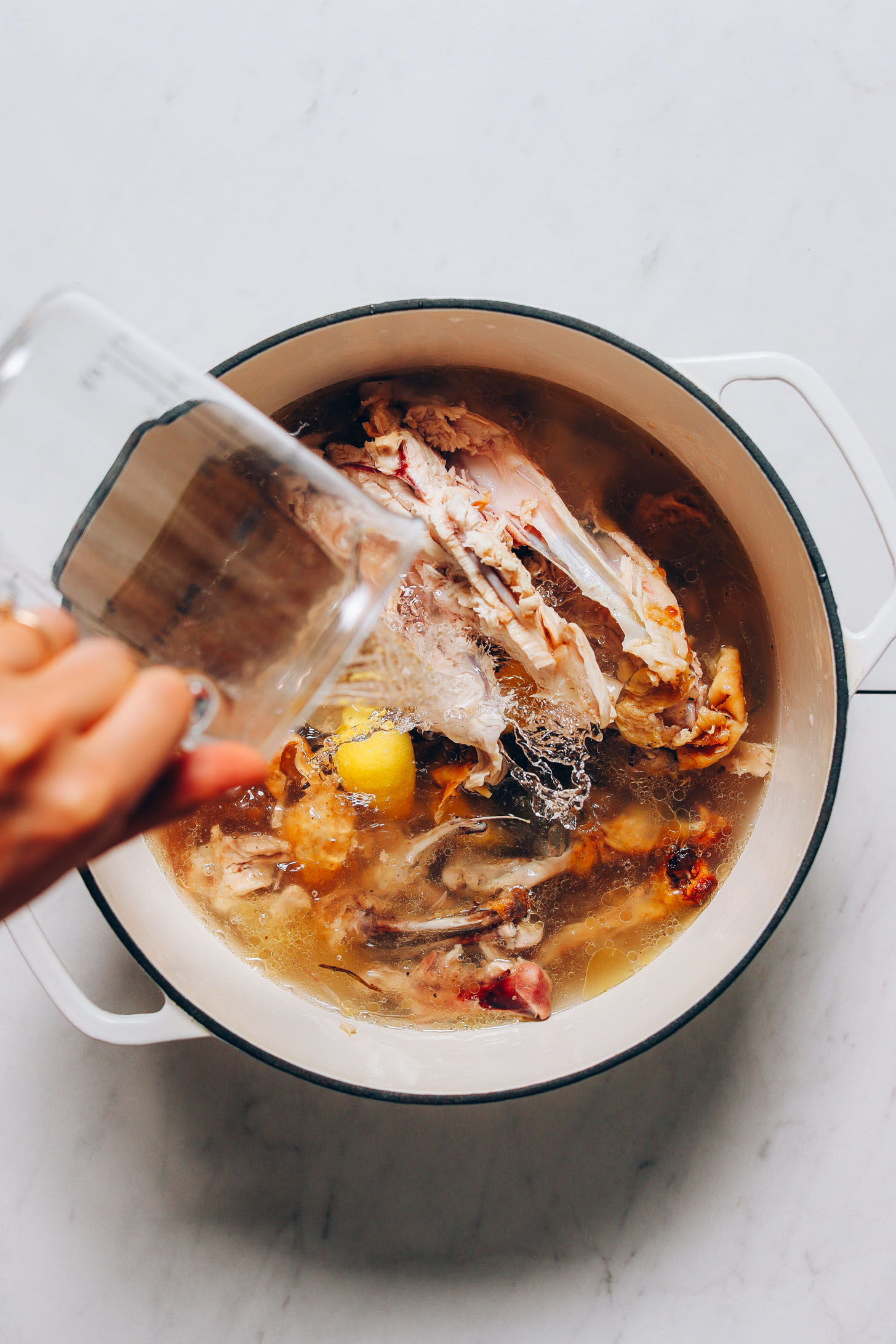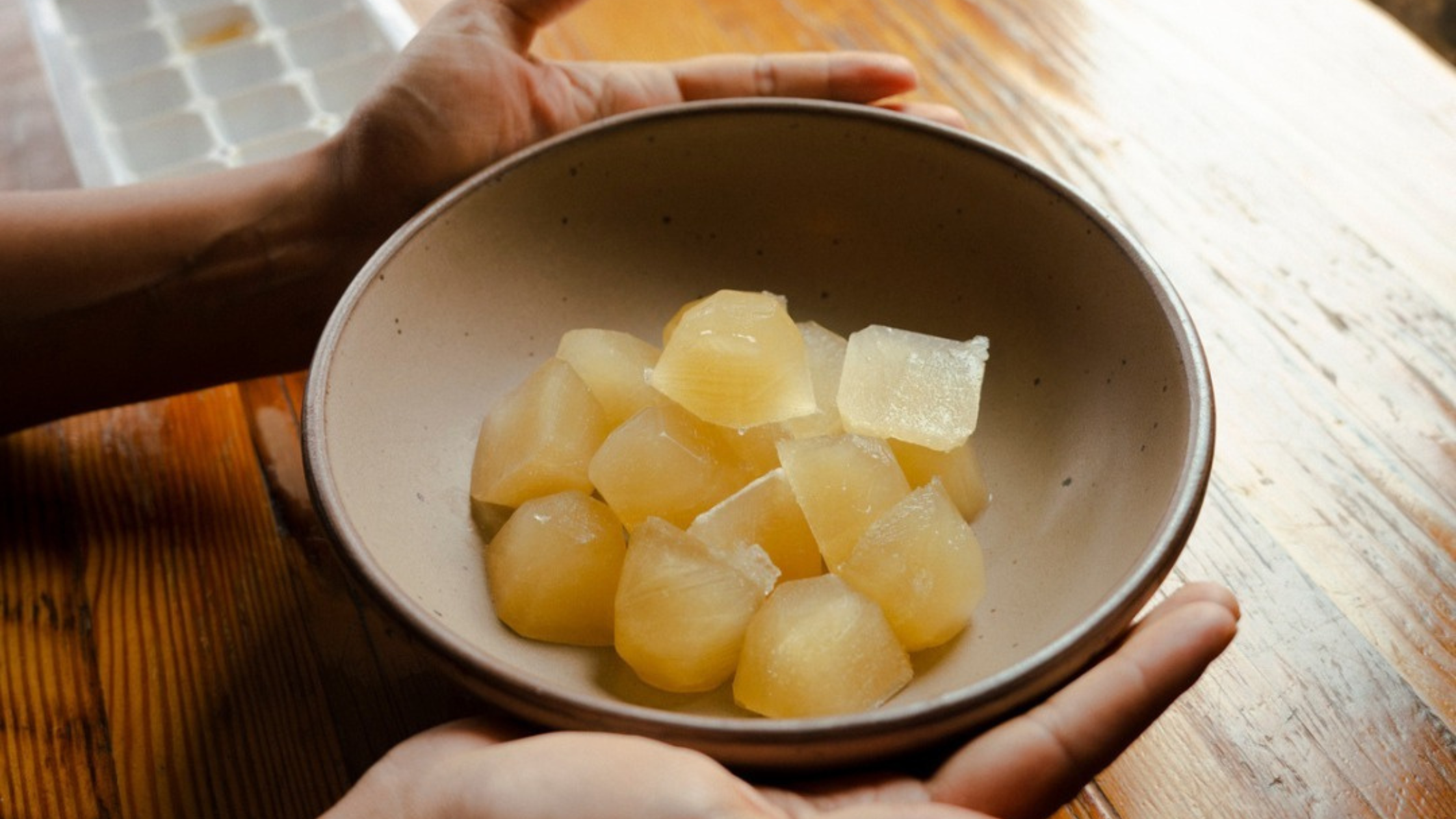The aValue of Healthy And Balanced Food: Why Bone Broth Is an Excellent Option for Infants
Bone broth stands out as a nutrient-dense option, supplying essential vitamins and minerals that sustain growth and advancement. What are the ideal ways to introduce bone broth to your little one?
Nutritional Advantages of Bone Broth for Newborns
When you introduce bone broth to your infant's diet regimen, you're providing a nutrient-dense food that provides various health and wellness advantages. Loaded with crucial nutrients, bone broth contains calcium, magnesium, and phosphorus, which support your infant's expanding bones. It's likewise rich in collagen, helping in the advancement of healthy skin, joints, and connective tissues.
Moreover, bone broth is an outstanding source of amino acids like glycine and proline, which play a significant function in general growth and muscular tissue advancement. These nutrients help advertise a solid immune system, establishing a strong foundation for your child's wellness.
Additionally, bone broth is very easy to digest, making it a mild option for your little one. By including this wholesome food into their meals, you're guaranteeing they get vital nutrients needed for their total wellness. Go ahead and make bone broth a staple in your baby's diet!
Exactly How Bone Broth Sustains Digestion
Bone broth is loaded with crucial nutrients that can really benefit your infant's food digestion. It promotes gut health and assists with nutrient absorption, making it a great addition to their diet plan. By integrating bone broth, you're establishing the stage for a much healthier gastrointestinal system.
Nutrient-Rich Composition
One of the most nutrient-rich foods you can present to your infant's diet plan is bone broth, which is packed with necessary minerals and amino acids that support healthy food digestion. Rich in collagen, bone broth helps enhance your child's intestine cellular lining, making it easier for their body to soak up nutrients. By incorporating bone broth into your baby's meals, you're giving them a wholesome food that nurtures their digestion system successfully.
Promotes Intestine Health And Wellness
As you present bone broth into your infant's diet regimen, you'll discover it not only nourishes yet additionally advertises gut health successfully. Rich in gelatin, bone broth assists soothe the digestive tract, lowering inflammation and supporting a healthy digestive tract lining. Additionally, the amino acids located in bone broth, such as glycine, aid in food digestion and can help protect against common tummy difficulties.
Aids Nutrient Absorption
Presenting bone broth not only supports digestive tract wellness yet likewise plays a substantial function in aiding nutrient absorption. When you give your baby bone broth, you're supplying an abundant resource of minerals and amino acids that enhance their gastrointestinal processes. The jelly in bone broth helps to soothe the gut cellular lining, boosting its ability to soak up important nutrients.
Enhancing the Immune System With Bone Broth

By incorporating bone broth right into your infant's diet, you're supplying an all-natural source of sustenance that advertises wellness. Consider making bone broth a staple in your infant's meals, as it can play an essential duty in their immune wellness and growth.
Easy Ways to Include Bone Broth Into Child's Diet plan
Including bone broth into your baby's diet can be easy and fulfilling. You can also utilize bone broth as a base for soups or stews that you prepare for the household, ensuring your child obtains a preference of delicious, healthy and balanced meals.
An additional alternative is to serve bone broth on its very own. Cozy it up and provide it in a sippy mug or tiny bowl-- it's a great way to introduce new flavors. If your infant delights in grains, think about cooking rice or quinoa in bone broth rather of water for extra nutrition. Finally, you can freeze bone broth in ice trays, making it very easy to add a cube to various meals whenever you want. These techniques will certainly assist your infant profit of bone broth effortlessly!
Homemade vs. Store-Bought Bone Broth: What to Pick
Which is far better for your child: homemade or store-bought bone broth? Homemade bone broth supplies you complete control over the ingredients. You can pick high-quality bones, natural veggies, and natural herbs, guaranteeing your child gets the most nutrients without additives or preservatives. And also, making it at home can be a fulfilling experience, allowing you to bond with your child while preparing wholesome food.
On the various other hand, store-bought choices are hassle-free and conserve you time. They typically include chemicals and may not match the depth of flavor and nutrition you obtain from homemade broth. If you choose store-bought, try to find brands that are organic and without ingredients.
Eventually, if you have the moment and resources, homemade bone broth is the remarkable selection for your infant's wellness. If you're brief on schedule, pick a high quality store-bought choice as a back-up.
Age-Appropriate Bone Broth Serving Tips
As your baby expands, it's crucial to customize bone broth serving ideas to their developing stage. For infants around 6 months, start with a few spoonfuls of watered down bone broth (organic bone broth).
When your infant gets to this link around eight months, you can offer it warm in a sippy mug or add it to soft foods like purees. By the time your youngster is around a years of age, think about supplying bone broth as a standalone beverage or blending it into soups and stews. Simply make certain to keep the broth reduced in sodium. Constantly keep track of for any reactions, and consult your doctor if you have concerns about introducing new foods. Enjoy this nutritious addition to your infant's diet!
Various Other Healthy Foods to Combine With Bone Broth for Infants
When you're looking to improve the nutritional value of bone broth for your baby, consider matching it with nutrient-dense vegetables like carrots and spinach. Entire grain choices, such as quinoa or wild rice, can also add texture and fiber. Furthermore, including healthy and balanced protein sources like shredded chicken or lentils will certainly round out the meal perfectly.

Nutrient-Dense Vegetables
Nutrient-dense vegetables are a great enhancement to bone broth for babies, improving both flavor and nutrition. Integrating veggies like carrots, spinach, and pleasant potatoes can improve the vitamin and mineral material of your broth.
You can quickly mix these vegetables right into the broth or serve them as soft, prepared items along with it. This not just introduces new flavors yet also motivates your kid to appreciate a variety of nutrients. By matching nutrient-dense veggies with bone broth, you're laying the foundation for a healthy and balanced diet plan right from the beginning.
Entire Grain Options

Healthy And Balanced Protein Resources
Bone broth pairs wonderfully with various healthy protein sources, further improving your baby's diet. Eggs, when introduced securely, are another fantastic choice; they're flexible and filled with nutrients. By incorporating these healthy protein sources with bone broth, you're giving your infant a well balanced, nourishing try these out meal that supports their development and growth.
Regularly Asked Inquiries
Can Bone Broth Cause Allergic Reactions in Infants?
Yes, bone broth can cause allergic reactions in babies, particularly if they're delicate to particular components. Always consult your pediatrician before introducing new foods and display for any indicators of allergies after feeding.
How Should Bone Broth Be Kept for Babies?
You must save bone broth in impermeable containers, either in the fridge for up to a week or in the freezer for up to 3 months. chicken bone broth. Constantly thaw it correctly prior to offering to your baby
Is It Safe to Offer Bone Broth to Premature Infants?
It's necessary to consult your pediatrician prior to introducing bone broth to premature babies. They'll assess your infant's specific wellness requirements and assure it's a knockout post secure, considering their special nutritional requirements and developmental stage. Always focus on skilled guidance.
What Are the Indications of Intolerance to Bone Broth in Babies?
When introducing bone broth, expect signs like fussiness, breakout, looseness of the bowels, or vomiting. If your child shows any of these responses, it's best to seek advice from a pediatrician prior to continuing to offer it.
Can Bone Broth Be Made Use Of as a Dish Substitute for Infants?
No, you should not use bone broth as a meal replacement for infants. It lacks important nutrients needed for their development. Instead, integrate it into their diet plan along with balanced meals for added nourishment and flavor.